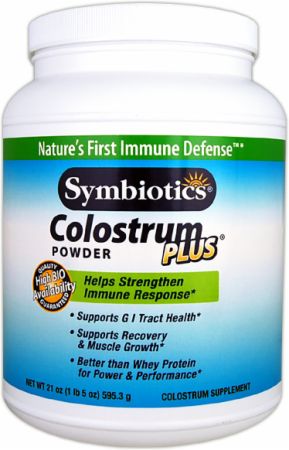Supplements: Colostrum
I personally have not tried colostrum yet and I am not a doctor, so please always double check before supplementing it. Colostrum is not suitable for vegetarians and individuals who are allergic to milk products. All in all, colostrum seems to be a more natural, more active growth, more expensive supplement which can replace your whey, casein, and creatine diet components if you can afford it.
What is colostrum ?
Colostrum is a special type of mother milk which is produced by mammals right before birth. It has less volume and more nutrients than the milk which is being produced after birth. Therefore, colostrum has higher concentrations of growth hormones, proteins, and ingredients which strengthen the immune system. As the digestive systems of young mammals have to develop and therefore can not process high volumes of milk this is beneficial to the newborn. Think about colostrum as a super food for newborns to grow quicker and immunise them.
What are the benefits of colostrum ?
The Australian Olympic team claims a correlation between their successes in 2000 and 2004 and the supplementation of their athletes with colostrum. This lead to an inquiry whether colostrum should be banned. The result was that colostrum was deemed natural and legal to use as a superfood to supplement. The claimed benefits are:
- Increased endurance
- Quicker recovery
- Improved function of the immune system
- Prevention of leaky gut (found in long distance runners... yes it is what it sounds like)
- Showed positive effect in fighting HIV in clinical studies
All in all if you look at several sources it seems to have the same benefits as whey protein, casein and creatine, with the two added bonuses of being natural and also have ingested growth hormones, which the former three supplements have not. Here is the most interesting report about colostrum I have found, which praises its benefits mainly, while talking about downsides briefly.
How much do you have to take ?
The Most common number I have found is 60 grams a day. Greg Everett talks in Olympic weightlifting of an amount of 20 - 23g a day. In my personal opinion 60g a day seems a bit excessive, unless you are training 3 - 4 times a day if I base it on creatine consumption. Colostrum is described in some circles as the "new creatine" therefore treat it accordingly.
What are the downsides of colostrum ?
If you already have cancer there is a good chance that colostrum will contribute to it growing more quickly. There seems to be no clinical evidence at this stage that it can be the cause of cancer. The other downside is the price. Compared to creatine you have to pay about 5 - 10 times more for colostrum then for the same amount of creatine. In addition, there is a high likelihood that all of the additional effects compared to more common protein supplements caused by the growth hormones will not take effect for adults due to their fully developed digestive systems.
Conclusion
All in all, if you can afford it, colostrum seems an interesting alternative to protein + creatine supplementation on a natural basis. Even if the adult digestive system destroys most of the benefits, if only some of them take hold, you have the better product compared to protein only. The fact that it is more natural than the highly processed creatine is also not to be underestimated if the quality of your supplements is of special importance to you. The more I learn about supplements it seems to me that all of them could cause and prevent cancer at the same time, depending on which study you consult. So shockingly enough, I exclude this as deciding criteria, as I want to supplement. The only way to get around that risk is not to supplement at all (and then you might cancer from the stuff that your couch is made of... so, either way, you are screwed...). On a positive note, creatine and protein have helped my to reach my strength goals.
Further reading
- Creatine
- Digestive Enzymes
- Electrolytes
- Fish Oil
- GABA
- Glucosamine
- Glutamine
- How much do I have to pay for supplements
- Multi-Vitamin
- Probiotics
- Protein
- Vitamin C
- Vitamin D
- What are supplements
- Which supplements are sold the most
- ZMA


